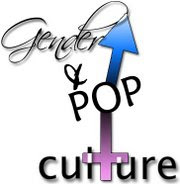Gender and Masculinity- In the scene where Peter and his friends are trying to fix up The Drunken Clam so it can stay in business there are several identities being challenged. The masculine idea that men can fix anything is challenged in this scene when they end up destroying the establishment instead of renovating it. Even though a new corporation based establishment pulls away business, the small family establishment fights to keep its doors open. In the end customers come pouring in to sing karaoke challenging corporate America while making fun of the stereotype that Americans can’t resist bad karaoke.
Exploitation of Women- Throughout the episode woman are constantly being exploited and marginalized, reinforcing sexism. In order to make her daughter sexier to attract men she tells her to try on tee-shirts that belittle women with saying like “Sperm Dumpster.” In the jail scene, Meg is used to keep the prisoners distracted with her beauty. Peter than agree to use his teenage daughters new hot image to make millions. They establish her as a sex symbol by making her blond and by keeping her half-naked, endorsing a false definition of sexy. In the Saturday Night Live scene, she is exploited as a sex symbol. In the end when Meg exclaims that its “too much work being beautiful” the idea that beauty is natural is challenged.
Race- The main characters in this series are dominantly white, middle class, and patriarchal. There was even a representation of the “token black” friend among Peter’s entourage. The minorities represented in this episode are clearly profiled. In the jail the majority of the prisoners were buff dirty looking white men. When it came to the album recording scene the family dog, Brian, represented an aggressively arrogant white male barking at the black producer for no apparent reason. By saying he got it from his father, “it was a different generation” he is trying to move the blame from himself not taking responsibility for his rude bias actions. This reinforces the American prejudices represented in our everyday society.
Sexuality- There are several homosexual references mentioned casually at various points in the episode. The first obvious reference is when Joe states that the men looked queer in their mismatching 80’s themed clothing. Then scene depicting the Tin Man as being homosexual and falling on a man “by accident” was very negative and derogatory. Another scene where Chris found his hair braided by one of the prisoners reinforced the stereotype of homosexuality in jails. To further this reference one mans ass was used as a contract, exemplifying the amount of rapes that go on in jail. These are all forms of homogeny being reinforced.
Family Guy. “Don’t Make Me Over.”
Season 4, Volume Three, Disc One, DVD. 6/5/05
Twentieth Century Fox Film Corporation: Beverly Hills, CA. 2005.
